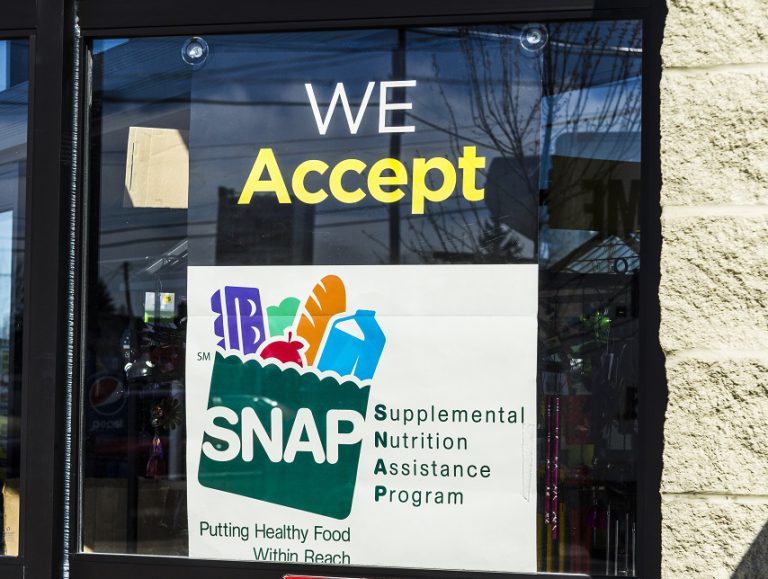Each month throughout the pandemic, Illinois Newsroom has received questions from listeners about whether maximum SNAP benefits will be issued. To find out more about how the program works and what SNAP recipients in Illinois can expect going forward, Illinois Newsroom reporter Dana Cronin spoke with Leslie Cully, who oversees the SNAP program for the Illinois Department of Human Services, or IDHS.
This interview has been lightly edited for clarity.
Dana Cronin: First off, I want to ask you the question that I know is on a lot of people’s minds, which is: Will there be additional SNAP benefits this month?
Leslie Cully: We have been approved to issue those emergency allotments of those maximum lot. That’s for July. That’s triggered by the fact that the governor has issued an emergency declaration that extends into July. Most of our regular SNAP allotments go out staggered between the 1st and the 20th of the month, so we’re staggering the emergency allotments between the 20th and the 30th just so the grocery stores can keep fresh food and produce on their shelves. We try to stagger the benefits out throughout the month.
DC: I imagine that’s a relief for a lot of listeners to hear. But I also wonder what the plan is for next month, and the months going forward?
LC: The Food and Nutrition Service (FNS) has not indicated the emergency allotments will stop. Right now the only trigger is if the state still has an emergency declaration in place. So if the governor extends Illinois’ emergency declaration into August, we will then submit a revised plan to FNS for approval to issue those emergency allotments for August.
DC: As you mentioned, the decision of whether or not to issue maximum SNAP benefits in a given month lies with FNS, the Food and Nutrition Service. How do you communicate with them about that?
LC: We have a great relationship with our Midwest regional office, and they are our liaison between the Midwest states and the national office. Each region of the country has a regional staff that they work with. So we’re meeting with them weekly throughout this pandemic. They’ve been a wonderful partner in this. So at this point, our plan has already been approved for these emergency allotments. We just need to submit to them via email a request to extend them into the next month and they’re usually very responsive.
DC: Illinois Newsroom has heard from some regular SNAP recipients that they haven’t been receiving those maximum benefits. I wonder if you have any idea why that may be, or whether you’ve been hearing similar stories?
LC: We’ve heard from a few and we’ve got a very close relationship with our core advocacy community. So they sent us a few examples of folks that they’ve heard from who did not receive these supplements. And in every specific case we looked at, it was because the family had already received the maximum amount. What these emergency allotments do is allow a family or an individual who was not already receiving the maximum for their household, it’s supplemented them up to the maximum amount. But if a household was already receiving the maximum amount, then they’re not eligible for any type of a supplement.
(end of interview)
For those interested in keeping up-to-date on SNAP and whether maximum benefits will be issued in a given month, Cully recommended monitoring the IDHS Facebook, Twitter and LinkedIn pages.
After the interview, Cully also highlighted another food assistance program available to Illinois families: the Pandemic Electronic Benefit Transfer (P-EBT) program, which provides financial assistance to families with children that rely on free or reduced-price school meals. P-EBT is available to any family whose children lost access to free or reduced-price meals due to pandemic-related closures, regardless of their SNAP status. The application for P-EBT can be found here, and the deadline for applying has been extended until the end of July.
Illinois Newsroom intern Jose Zepeda helped adapt this interview for the Web.

